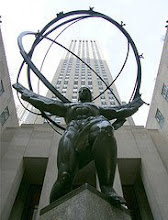
...few weeks ago, then. Long lost friend from La Grange Park posted a lyric from Van Morrison's Astral Weeks (1968) on his Facebook wall. I peepered on that verse and felt:
1) newfound respect for said friend
2) a vague urge to cry
Here's why 2) happened:
Back during summer ‘05, clown-carred into a middle seat of a Portland-bound flight out of O’Hare, I thumbed eagerly thru my new book (Psychotic Reactions and Carburetor Dung, a Lester Bangs anthology). Lester ain't a virginal blog topic; I referenced him here. Anyway, one of the articles in Carburetor Dung addresses Astral Weeks, Van’s second release as a solo artist. Here's how Bangs (an unabashed Van disciple) concludes his analysis of this seminal album:
"...it might be pointed out that desolation, hurt, and anguish are hardly the only things in life, or in Astral Weeks. They're just the things, perhaps, that we can most easily grasp and explicate, which I suppose shows about what level our souls have evolved to. I said I wouldn't reduce the other songs on this album by trying to explain them, and I wont. But that doesn't mean that, all things considered, a juxtaposition of poets might not be in order…”
[Lester then presents one Van lyric and a poem from Federico Garcia Lorca, a prominent Spanish writer who died in ‘36.]
If I ventured in the slipstream
Between the viaducts of your dreams
Where the mobile steel rims crack
And the ditch and the backroads stop
Could you find me
Would you kiss my eyes
And lay me down
In silence easy
To be born again
--Van (from the title track off Astral Weeks)
My heart of silk
is filled with lights,
with lost bells,
with lilies and bees.
I will go very far,
farther than those hills,
farther than the seas,
close to the stars,
to beg Christ the Lord
to give back the soul I had
of old, when I was a child,
ripened with legends,
with a feathered cap
and a wooden sword.
--Lorca
 Tough-ass Mike lost his shit after reading Lorca's poem. It was just too much; I cried and cried. With those sixty-two words, Lorca issued my stale, sepian world a (much-needed) Randian shrug. I read and re-read that passage probably fifteen times whilst aboard the plane, tearing up every time. There's really nothing more life-affirming than a bare, minimalist work of art powerful enough to fell an emotionally armored man.
Tough-ass Mike lost his shit after reading Lorca's poem. It was just too much; I cried and cried. With those sixty-two words, Lorca issued my stale, sepian world a (much-needed) Randian shrug. I read and re-read that passage probably fifteen times whilst aboard the plane, tearing up every time. There's really nothing more life-affirming than a bare, minimalist work of art powerful enough to fell an emotionally armored man.(…props to Lester for isolating two brilliant verses that warrant magnification…)
I'd like to give Lester the same treatment. One might argue that Lester (like a Nietzsche, say) was born posthumously. Though he boasted a rabid readership while alive, he's reached far more since his untimely death in '82. For us to ignore Lester's amphetaminic, electric prose would be to deprive our genius-starved society of a beautiful mind. In a crude attempt at an epitaph of sorts, let’s turn the mic on him as he sidles up to literary pioneer Mark Twain:
"It is a fact that nine-tenths of the HUMAN RACE never have and never will think for themselves, about anything. Whether it's music or Reaganomics, say, almost everybody prefers to sit and wait till somebody who seems to have some kind of authority--even if it's seldom too clear just where they got it--comes along and informs them one and all what their position on the matter should be. Then they all agree that this is gospel, and gang up to persecute whatever minority might happen to disagree. This is the history of the human race, certainly the history of music."
--Lester Bangs (from Carburetor Dung)
 "When an entirely new and untried political project is sprung upon the people, they are startled, anxious, timid, and for a time they are mute, reserved, non-committal. The great majority of them are not studying the new doctrine and making up their minds about it, they are waiting to see which is going to be the popular side."
"When an entirely new and untried political project is sprung upon the people, they are startled, anxious, timid, and for a time they are mute, reserved, non-committal. The great majority of them are not studying the new doctrine and making up their minds about it, they are waiting to see which is going to be the popular side."--Mark Twain (as quoted in the Dec. 22nd/29th New Yorker)
Someday, if I do it all right, if I tell it straight and true, perhaps someone will choose to juxtapose my words with someone of relevance…
...















































